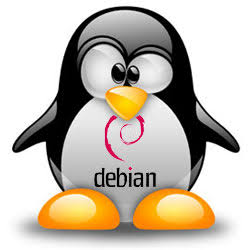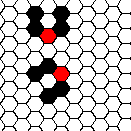- cross-posted to:
- libre@hexbear.net
- debian@lemmy.ml
- badnews@lemmy.ml
- linux@lemmy.ml
- cross-posted to:
- libre@hexbear.net
- debian@lemmy.ml
- badnews@lemmy.ml
- linux@lemmy.ml
It has never made any sense to make a normal user(newbie) to have to search for drivers for wireless or video. The vote has probably made quite a few FSF/GNU zealots upset. I see it as a good thing. Drivers in the installer will make Linux adoption easier.
First, you confuse firmware with drivers.
Second, I am annoyed because I see this as a lack of respect for my digital rights. There was option to maintain both images or showing visibility to the other one.
Third, projects such as H-Node show that integration and help with the ecosystem could have worked by showing compatible hardware in first hand.
Forth, Debian was never for newbies and not for that, but because people don’t read manuals. A different aproach would have been educational promotion of the existing Debian manuals before even downloading and even focusing on usability and accesibility to them. Maybe even creating simple English version or a reduced set by chapters.
Fifth, any user should know which hardware is using and get familiar with it. The out of the box concept many people promote leads to the believe of black boxes as solution. A mixed approach is also an option by using H-Node for example.
This could have contributed to the following:
- showing visibility to other projects working towards getting hardware work with free software.
- helping new users to find such a hardware instead of falling in the fallacy of “If you don’t see it, it doesn’t exist”.
- contributing to the digital illiteracy lacked by even medium range users of GNU/Linux family and almost all in a general sense using a computer.
- respecting the digital rights of people instead of making a false declaration of failure.
- this also derivates in being example for other projects towards getting or developing free software used in hardware such as firmware.
- you still fit the purposes of the other part by setting the additional image in the most needed cases.
This is not how on boarding of new users works. If you put up a RTFM wall and intentionally make their installation fail they either just stick with Windows or use another more newbie friendly distro.
And Debian is a community driven distribution. It needs new users (who to a small percentage become contributors) all the time or it can’t survive.
Edit: also I don’t see how this is disrespecting your digital rights. If you feel so strongly about the issue you surely made your homework and only run hardware with libre firmware, so this has absolutely no effect on you.
If you think I am throwing a RTFM I think you are not even reading the first part of my comment. So, in order to understand me correctly, I recommend you to read it carefully part by part.
I don’t see how the second parragraph applies wrongly here.
About your edition, I am unsure if you understand how rights exist. A right, or mostly a natural right while not being guaranteed, is deducible from inalienable interests. These are interests born of aware individuals and are as basic as “I need to eat”.
In this digital world, other inalienable interests are born, and new rights deduced from them. The “4 freedoms” about the software are no more than a build of these rights in the same way the letter of the human rights try to do the same. That is all, no more complex than that.
Rights are also not based on claim. An individual should not claim every time they want their right guaranteed, that is plainly impossible with all individuals. Rights are guaranteed first and get available even before you need them.
By loading, trying and executing propietary software in the devices I use you are violating these rights.
There are manufacturers doing that? Sure. That makes my fight useless because I already could have that being executed? No and pointing to that is a Nirvana fallacy itself: “as you are in shit, doesn’t matter what you do because everything would be like that”.
No my last point was different. At no point is Debian forcing you to use these non-Free firmwares. They are a purely optional inclusion in their installer for those people that do need to use them to get a functional system. Thus your digital rights are not negatively impacted at all.
First of all, thank you for the clarification.
Related to the inclusion of the installer, that is not what they meant AFAIK. The idea is loading and executing it when applicable, even if it is not needed (RTL 8188EE is an example) as was discussed previously in other voting or mailing list which I need to check.
Edited: it is also supported because, in offers to load the firmware, you must do it at boot time for the initialization of the hardware.
Granted there are some rare edge cases where both options exist, but after installing Debian you are free to revert any such non-Free firmware on your actual system.
you are free to revert any such non-Free firmware
That is not how granting a right works. Damage of it is already made and no, there is no such thing as rare cases.
Additionally, the big part of the hardware in H-Node has non-free firmware available in the respective package, also embedded on boot.
I believe there’s a lot of misunderstanding of what’s freeSW, what’s openSW, and what debian repos have been providing all along.
Debian has been providing a “non-free” repo for all versions they keep in their repo servers (experimental, unstable, testing, stable) since I can remember.
And to me it’s important to make a difference of what’s freeSW vs. what’s not freeSW, and I prefer to use freeSW, unless I’m forced to use something it’s not freeSW and there’s no way to overcome that.
This is one of the things openSW movements (remember, IBM, MS, Google, and several other corps all are part of, or contribute to openSW fundations, but never had supported the idea of freeSW) have influenced to, and convinced most into. Now the value of freeSW means almost nothing, and most are just happy with openSW. I can’t judge anyone, but just say, this is really sad. And once again I see people treating those defending principles as 2nd class citizens, :(
I understand the point, but I was thinking that there were already Linux distributions fitting into that niche…
Not really. They are either not very beginner friendly or have other issues that make then objectively worse, like Ubuntu pushing their Snap crap etc.
Debian made some nice efforts to improve userfriendlyness in recent years, but their installer just failing to work on common hardware was a major sticking point. This should largely resolve this issue at no detriment to anyone.
Yeah, all it did was make newbies choose Ubuntu over Debian and that is just objectively the worse choice.
The vote has probably made quite a few FSF/GNU zealots upset. I see it as a good thing.
It certainly made proprietary software stakeholders/companies very happy indeed.
Drivers in the installer will make Linux adoption easier.
No. That would be debian-only. Adoption-front is generally Ubuntu, Mint, …
Important step to sink the boat…
Free software is failing and getting co-opted because they thought getting a bunch of enthusiasts to boycott proprietary software was enough to win. As long as the means of production is owned by the ruling class, their interests will be favored. Our boycotts will cause little but inconveniences for ourselves.
So true
Boycotting efforts against digital souvereignty alone is not enough. But the efforts to build a regulative solution won’t work without enough people willing to continue the boycott.
Can you point to the new version.
I see that this is the 2004 one and I don’t find a way to see the new version that is supposed to be mentioned here.
At least, I didn’t find it with a quick search with
C-fand some links attached.Edited: Ah, the information is in the mailing list yet.
great alternative if you seek software freedom as GNU/FSF defines https://guix.gnu.org
Looks interesting, but to what extent is it compatible to other distributions, allowing for package-related or other reuse?
As much as an Ubuntu fork that removes that semi-proprietary snap stuff would be in a good position to build a user base quickly, so would now a Debian fork that keeps the on-device code licenses clean.
compatible to other distributions, allowing for package-related or other reuse?
Guix package manager theorerically can run in any distro so you can use Guix packages in any distro; I run it on NixOS for example. Some distributions have a dedicated package for installing it, or use the official instructions https://guix.gnu.org/en/manual/en/html_node/Binary-Installation.html#Binary-Installation
Just as NixOS, GNU Guix System cannot just run any arbitrary binary built in another GNU/Linux distribution because it does not follow File Hierarchy Standard and so on… But there are workarounds, like patching the binary to change the dynamic loader path.
But one can use Flatpak just fine on GNU Guix System and NixOS.
Appimage requires patching because it is not portable.
As much as an Ubuntu fork that removes that semi-proprietary snap stuff would be in a good position to build a user base quickly, so would now a Debian fork that keeps the on-device code licenses clean.
There are already PureOS and Trisquel https://www.gnu.org/distros/free-distros.en.html
I suggested GNU Guix System because it is innovative in a very useful and joyful way.
I didn’t mean running on the top of some distro, but “native” compatibility to existing packaging. Snap/Flatpack/Nix etc. can also more or less run on the top of arbitrary distros, but I think more acceptance can be achieved if the packages are (at least source-level) compatible to something existing and widespread and run as first-class citizens there.
Not saying that Guix isn’t innovative, useful or joyful, though. Just thinking that it might not work as an alternative for Debian in every case.
Will look into PureOS and Trisquel. Are their releases roughly corresponding to some releases of Debian or Ubuntu, respectively (e.g. package-version-wise)?
I didn’t mean running on the top of some distro
i wrote that 1st paragraph just in case.
but “native” compatibility to existing packaging
2nd paragraph
if the packages are (at least source-level) compatible to something existing and widespread and run as first-class citizens there.
Traditional package managers and formats are so bad… Well Unix, GNU/Linux is a mess.
no current better way around it other than the Nix and Guix way. Flatpak is the 2nd better current model for portability. Today I only package to Nix and Guix; sometimes Flatpak as well.
Very interesting, will give it a shot when I find the time🙂👍
This link is relevant for context. It’s a small blog post from Steve McIntyre identifying the problems he sees with firmware in Debian and proposing solutions. Eventually McIntyre’s views led to this general resolution.
Quoting from that link:
In my opinion, the way we deal with (non-free) firmware in Debian is a mess, and this is hurting many of our users daily. For a long time we’ve been pretending that supporting and including (non-free) firmware on Debian systems is not necessary. We don’t want to have to provide (non-free) firmware to our users, and in an ideal world we wouldn’t need to. However, it’s very clearly no longer a sensible path when trying to support lots of common current hardware.
With his proposed solution being to
[…] split out the non-free firmware packages into a new non-free-firmware component in the archive, and allow a specific exception only to allow inclusion of those packages on our official media. We would then generate only one set of official media, including those non-free firmware packages.
So basically the same that was voted now, “Change SC for non-free firmware in installer, one installer”.
In my humble opinion, as a literal nobody on the internet: sometimes you need to take a step back to take two forward. This inclusion looks undesirable but necessary, and I feel like giving differential treatment to non-free firmware vs. non-free software was the right move here, to minimise the ideological damage caused by promotion of non-free code.
Sigh.










